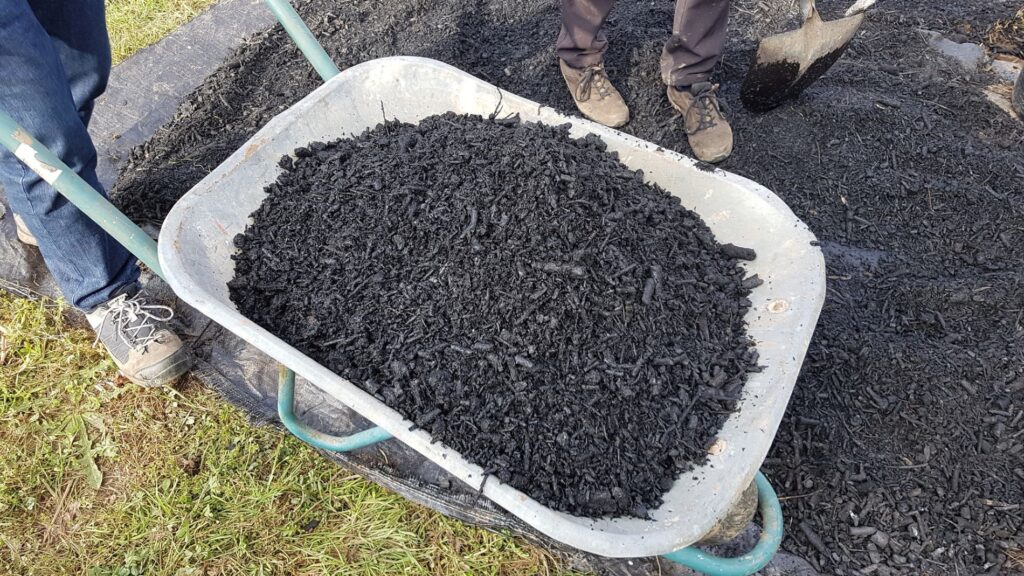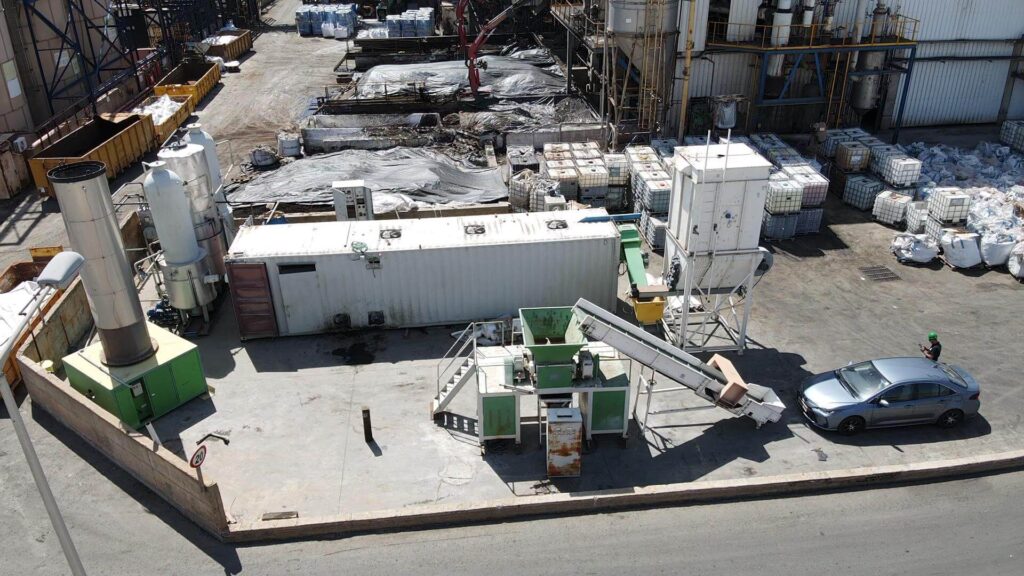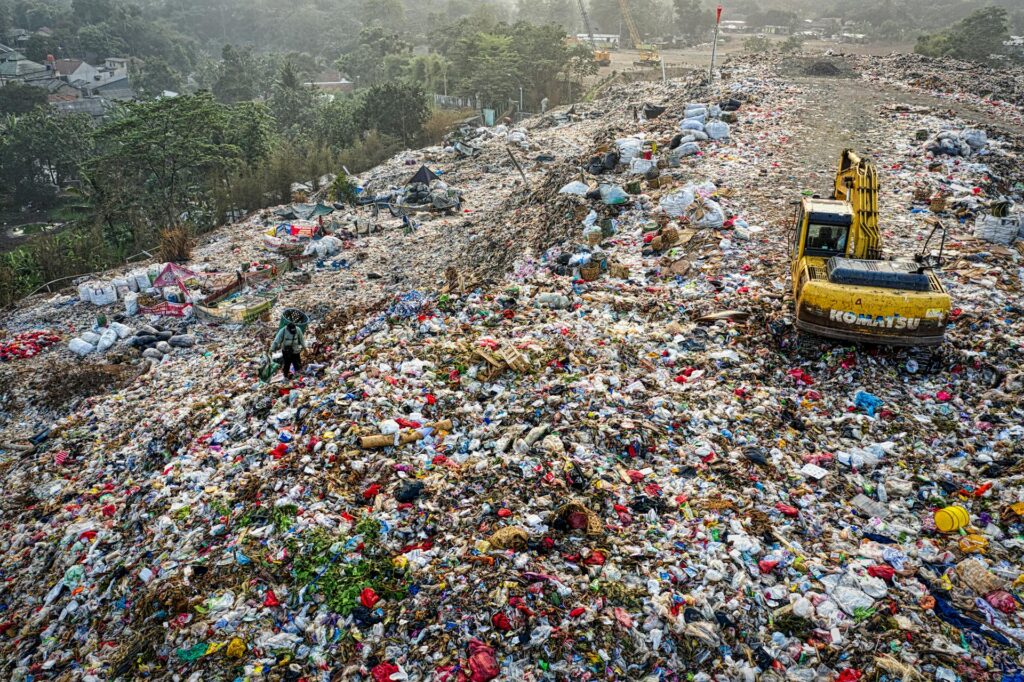An Israeli startup is revolutionizing waste treatment, with technology that can transform garbage into proverbial gold and even help mitigate the impact of climate change.
Co-Energy has created a way of making plastic and organic waste into high-demand energy commodities that include electricity, hydrogen, fuel and biochar – a type of charcoal made by processing organic material that is often used to improve soil health as it can help retain water and nutrients.
The field of waste-to-value has been around for decades, Co-Energy CEO Aviv Dekel tells NoCamels, but the market faced two obstacles: the technological challenge of making the waste into a resource, and making that technology attractive to potential users.
“We have conquered both of those challenges,” Dekel says.
Co-Energy’s technology involves a process called pyrolysis, whereby materials like wood or plastic are heated to very high temperatures without the use of oxygen.
And because there’s no oxygen, the materials don’t burn, and instead are broken down. This process can transform substances like wood into biochar and plastics into a form of oil or gas.

The company developed a paralytic reactor – a chamber where the pyrolysis occurs – that works continuously, rather than processing the material in batches.
“There is constant energy being generated,” Dekel says.
The technology also overcomes many of the challenges presented by dealing with multiple kinds of waste matter.
Waste comes in many forms, and the Co-Energy platform can work with different types of parameters, such as moisture and mass, in order to generate that consistent and reliable stream of energy.
“The technology needs to be robust on one hand and sensitive on the other,” Dekel explains.
“We developed a sophisticated system that measures all these different parameters and works at very high temperatures.”
Established in 2014 by three co-founders with expertise in chemistry, mechanical and material engineering, the Yehud-based company focused on tackling the challenge of transforming plastic and organic waste into a valuable resource.
Dekel says that it took Co-Energy four years of research and development to reach a level of confidence in the technology to go to market.
The company’s patented, proprietary technology is now actually able to turn one ton of plastic waste into 2.5 megawatts of electricity. And that, according to the US Department of Energy, could power 1,625 homes for a year.
Plastic waste is one of the world’s most pressing issues. According to the United States Environmental Protection Agency (EPA), plastic waste made up about 12 percent of the total municipal solid waste in the United States in 2018 – which amounts to 35.7 million tons. However, only about 9 percent of that plastic waste was recycled, and the majority ended up in landfills.
These landfills pose significant environmental threats due to plastic’s long decomposition time, which can span hundreds or even thousands of years. During this period, the plastic can release harmful chemicals into the soil and groundwater, leading to potential contamination of natural resources.
And Co-Energy is now able to take that plastic waste and convert it not just into fuel and electricity, but also to hydrogen, a material used in a plethora of industrial processes.
Sign up for our free weekly newsletter
SubscribeDekel says that as the company expands its customer base, it is constantly working to expand its capabilities and flexibility in the waste-to-value process, so as to accommodate as many different waste forms as it can.
Today Co-Energy’s clients include municipalities, recycling companies and even major manufacturers that have large amounts of plastic or agricultural waste to treat.
Currently operating in Israel, the company works on a business-to-business model, adhering to the national regulations regarding waste treatment for each project.
In its most recent project at the Elcon Recycling Center in the Negev, Co-Energy is using three reactors each processing half a ton of plastic waste per hour, rising to two tons per hour after six months. This more intensive process can convert the waste to 22 million liters of fuel per year.
Meanwhile, another project that began in December 2022 treats organic waste such as wood, sludge and vegetation at a rate of 3 tons per hour to create biochar.
Dekel explains that creating biochar involves careful monitoring of the process in order to maximize the outcome.
“This realm of organic waste is very difficult to convert to energy in an efficient manner, because it’s very low in its caloric value to start with,” she says.
“But we stop the process right before the material is fully evaporated, and then you get the wonderful product biochar, which is well known all around the world.”

According to Dekel, the company’s biggest competitor is foreign waste facilities, leading to Co-Energy having to convince institutions to process their waste for profit instead of selling it abroad.
“You take the waste that everybody wants to get rid of, and you turn it into a commodity that can generate over $400 or $500 per ton,” she explains. “That’s taking the notion of circular economy three steps forward.”
The company is proudly entirely bootstrapped and is currently not looking for funding. With successful projects in Israel to show, Co-Energy has now received interest from international customers, specifically in Mexico and Australia.
“We have very impressive pipelines of projects, in different stages of negotiations, we are definitely expanding our businesses overseas,” Dekel says.
In the future, the company aims to take the waste-to-value process and place it in the larger context of climate change, helping countries achieve their net zero pledges for carbon emissions.
Co-Energy believes that waste-to-value is one of the most impactful ways to reduce a country’s overall emissions.
“We need to make renewable energy affordable and accessible, and by utilizing waste through our process, we can complement these initiatives and really hit all those different checkboxes in the market,” Dekel says.
“We really try, as a company philosophy, to work in an overarching manner, to try to tick as many of those boxes as we can.”
Related posts

Harnessing Our Own Bodies For Side Effect-Free Weight Loss

Israeli Device Is New, Drug-Free Solution For Men Coping With ED





Facebook comments